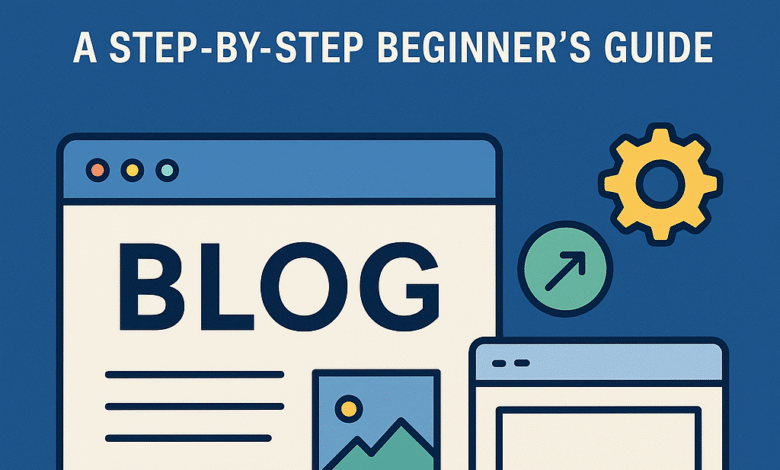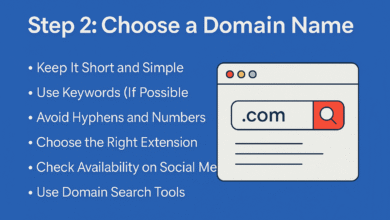How to Start a Blog or Website in 2025: A Step-by-Step Beginner’s Guide

Starting a blog or website in 2025 is easier—and more powerful—than ever. Whether you want to share your passions, build a personal brand, or create a full-time online business, this guide will walk you through every essential step.
Step 1: Define Your Purpose
Before you write your first blog post or build a homepage, ask yourself:
- What’s the goal of your blog or website?
- Who is your target audience?
- What topics will you focus on?
Pro tip: Niche down. A focused blog (e.g. “plant-based recipes for athletes”) performs better than a general one.
Step 2: Choose a Domain Name
Your domain name is your digital identity. Make sure it’s:
- Short and easy to remember
- Relevant to your niche
- Available with a
.comextension (ideally)
You can check domain availability on platforms like Namecheap or GoDaddy.
Step 3: Select a Web Hosting Provider
To make your blog live online, you’ll need a reliable web hosting service. Top beginner-friendly options in 2025 include:
- Bluehost (great for WordPress beginners)
- SiteGround (excellent support and speed)
- Hostinger (affordable with fast loading times)
Choose a plan, register your domain (or link an existing one), and install WordPress in one click.
Step 4: Install WordPress (or a Website Builder)
WordPress is the most popular CMS in the world and powers over 40% of all websites. It’s free, flexible, and SEO-friendly.
If you’re not tech-savvy, you can also use drag-and-drop builders like:
- Wix
- Squarespace
- Webflow (for more advanced users)
Step 5: Choose a Theme and Customize Your Site
Your theme determines the look and feel of your blog.
- Choose a clean, responsive theme (mobile-friendly is a must in 2025).
- Customize your site’s logo, colors, fonts, and layout.
Free and premium themes are available directly in the WordPress dashboard or on sites like ThemeForest and GeneratePress.
Step 6: Install Essential Plugins (for WordPress Users)
These plugins will boost your blog’s performance and SEO:
- Yoast SEO or RankMath – for search engine optimization
- WP Rocket – for speed and caching
- Elementor – for drag-and-drop design
- UpdraftPlus – for automatic backups
- MonsterInsights – to track traffic with Google Analytics
Step 7: Write Your First Blog Post
Here’s a simple structure to follow:
- Headline – Clear and compelling (use keywords!)
- Intro – Hook your reader in the first paragraph
- Main Body – Use headings (H2, H3), bullet points, images
- Conclusion – Summarize key takeaways
- Call to Action (CTA) – Ask readers to comment, share, or subscribe
Step 8: Promote Your Blog
Even the best content needs promotion. Use these free methods:
- Share on social media (Instagram, TikTok, LinkedIn, X)
- Join Facebook groups related to your niche
- Write guest posts on other blogs
- Build an email list from day one with tools like MailerLite or ConvertKit
Step 9: Monetize Your Blog
Once you have consistent traffic, you can start earning through:
- Affiliate marketing
- Google AdSense or Ezoic ads
- Selling digital products (eBooks, courses)
- Sponsored posts or collaborations
Final Tips for Blogging Success
- Be consistent. Blogging is a marathon, not a sprint.
- Focus on value. Always write with the reader in mind.
- Learn basic SEO and keyword research.
- Use tools like Ubersuggest, Google Trends, or Ahrefs.
- Stay updated. Blogging trends evolve fast—keep learning!
Ready to Start Your Blog?
Now that you know how to start a blog or website in 2025, it’s time to take action. Don’t wait for the “perfect” moment—just begin. Your future self will thank you.
Keywords Targeted:
- start a blog in 2025
- blogging for beginners
- how to start a blog
- create a website
- WordPress blogging
- monetize your blog

